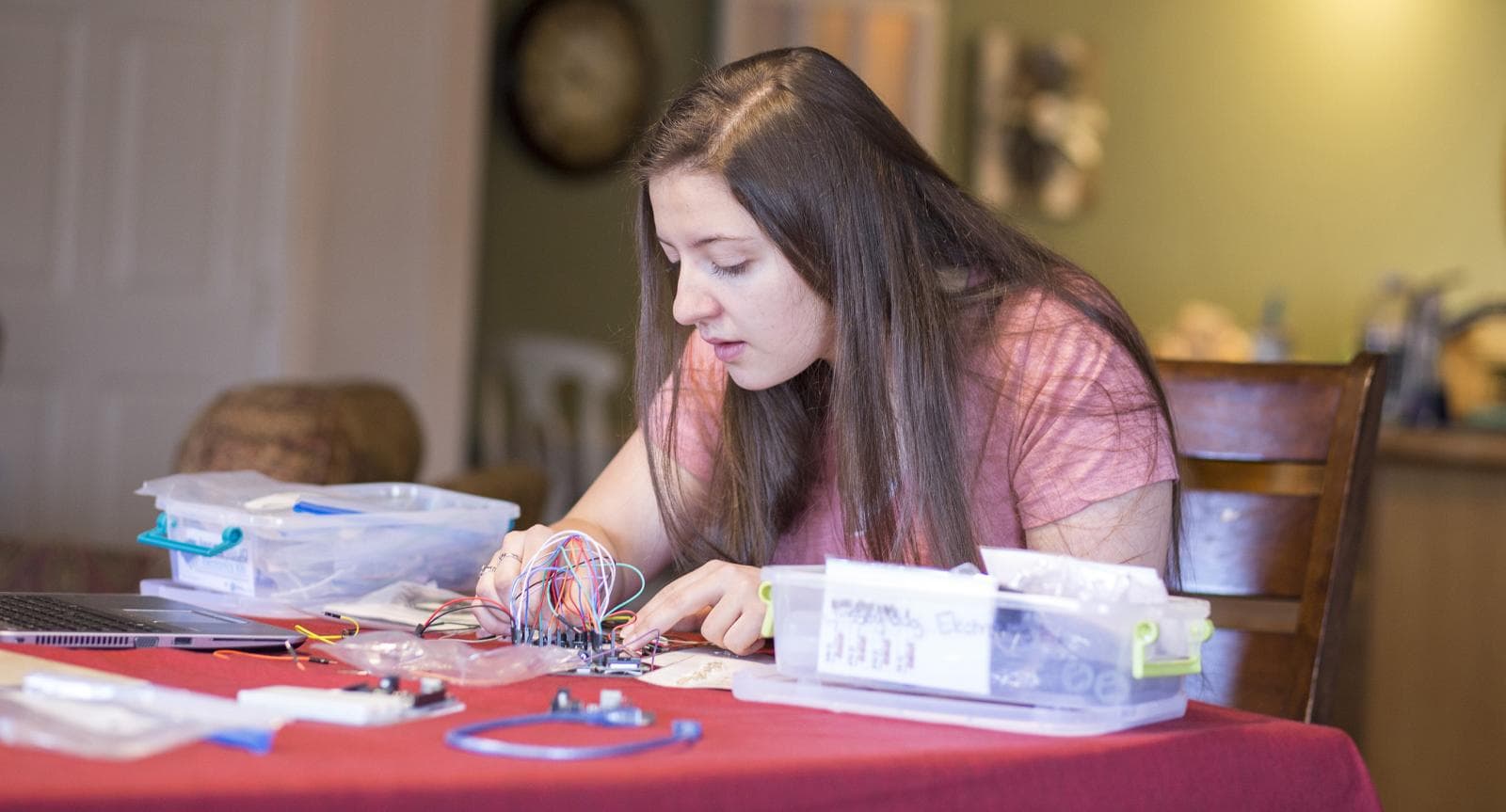Content
Projects provide the basis of the 4-H program by offering various educational experiences. Carrying out a project will help the member "learn by doing" as well as learn "why" things happen the way they do.
Project Work in 4-H
Why projects?
The project is a teaching tool that can be used to develop many desirable traits in addition to the more evident project skills.
Project work is a means to an end, not the end itself. The development of the individual is the most important part
What are projects?
Projects are real life experiences that help 4-H'ers learn to make sound decisions. Projects put the hands and mind to work.
What are the objectives of 4-H projects?
Create a sense of ownership
Give a feeling of achievement
Strengthen family and community ties
Provide members the opportunity to:
- learn project skills
- develop and understand project knowledge
- develop good attitudes
- assume responsibility
- provide healthful competition
- make meaningful decisions
Provide leisure time activities
Explore career opportunities and thus the need for continued education. All projects are, in a sense, career explorative–giving each member a taste of the work and responsibilities involved.
How are projects conducted?
Project work is conducted through various delivery methods:
- project meetings at club, county, or state events
- demonstrations and talks at club meetings, county contests, or state contests
- tours
- family activities or work at home
- exhibiting at the county or state fair
- recordkeeping
- workshops or camps
Project selection is optional for Nebraska 4-H members, with the exception of horse and shooting sports projects. However, youth are encouraged to officially enroll in projects they are interested in. The project enrollment process may help youth learn valuable management skills like goal-setting, record-keeping, planning, and organizing.
4-H curriculum and learning resources for youth, volunteers, and staff are available from Nebraska Extension and from National 4-H.
2026 Nebraska 4-H Projects
Animal Science
- Beef
- Cat
- Dairy Cattle
- Dog
- Goat
- Horse
- Poultry
- Rabbit
- Sheep
- Swine
- Veterinary Science
- Other Pet or Small Animal
Communication & Expressive Arts
- Communications
- Photography
- Visual Arts
Consumer & Family Science
- Consumer Education
- Heritage
- Home Design & Restoration
- Human Development
- Textile, Quilts & Apparel
Environmental Education & Earth Science
- Conservation & Wildlife
- Entomology
- Forestry
- Shooting Sports
- 22 Pistol
- 22 Rifle
- Air Pistol
- Air Rifle
- Archery
- BB Gun
- Hunting Skills
- Muzzleloader
- Shotgun
- Smallbore Rifle
- Smallbore Pistol
Health & Wellness
- Healthy Lifestyles
- Food & Nutrition
- Safety
Leadership, Citizenship & Personal Development
- Citizenship
- Entrepreneurship
- Leadership
Plant Science
- Agronomy
- Horticulture
- Range
Science, Technology, Engineering & Math
- Aerospace (Rockets/Drones)
- Computers
- Electricity
- Geospatial
- Physics
- Robotics
- Welding
- Woodworking
Youth Curriculum & Learning Resources
Complimentary 4-H Curriculum
University of Nebraska-Lincoln
All enrolled Nebraska 4-H youth and volunteers receive Complimentary 4-H Curriculum that has been developed at the University of Nebraska-Lincoln.
A link to access the digital curriculum will be emailed from the 4HOnline Member Enrollment System once enrollment has been completed.
The free, complimentary version of Nebraska-developed curriculum is view-only. Printed or downloadable copies of most materials may be purchased in the UNL Marketplace.
Enroll to Receive Complimentary Curriculum (provided by Nebraska 4-H)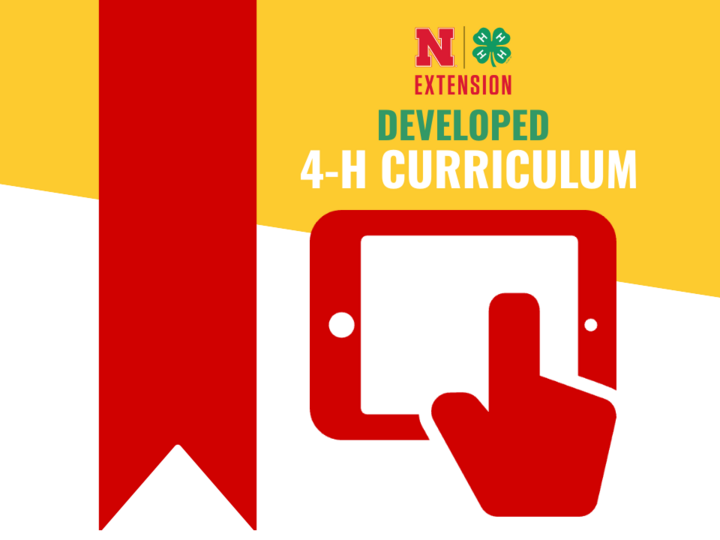
UNL Marketplace
University of Nebraska-Lincoln
Print and digital 4-H curriculum that has been developed by Nebraska Extension at the University of Nebraska-Lincoln is available for purchase through the UNL Marketplace.
UNL Marketplace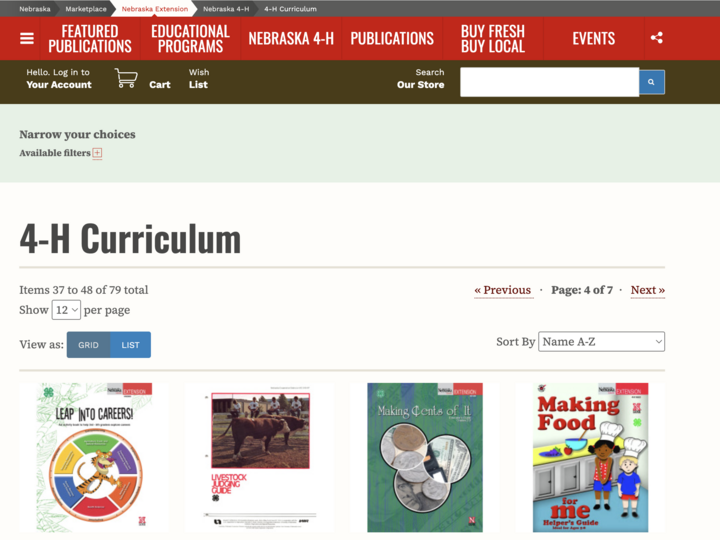
CLOVER by 4-H
National 4-H
4-H's national online learning platform helps kids become more confident, resilient and independent.
With 300+ interactive online activities available, CLOVER offers a wide range of activities and courses across Agriculture, STEM, Healthy Living and Civic Engagement.
Join CLOVER today and help youth reach their full potential.
CLOVER by 4-H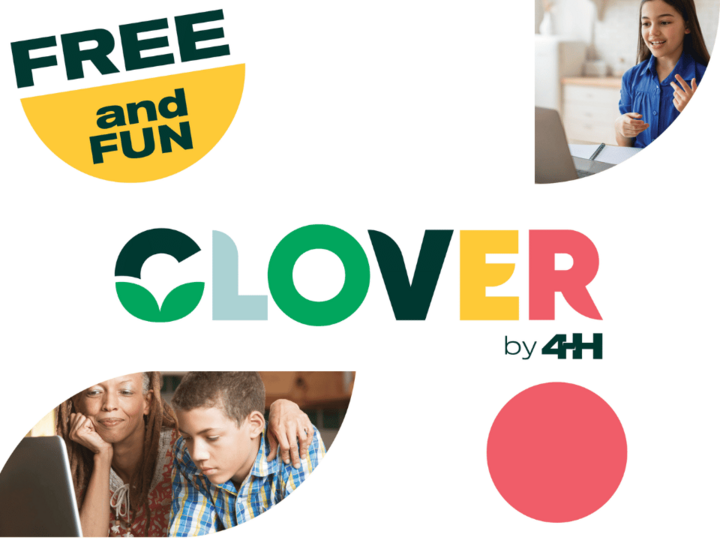
Discover Box by 4-H
National 4-H
The Discover Box builds real-world readiness through fun, interactive projects that spark curiosity and foster essential life skills. Each box includes materials and instructions for up to six youth to explore topics like STEM, agriculture, health, and leadership—with many activities designed for reuse or easy adaptation.
Developed with curricula from leading land-grant universities, the 4-H Discover Box delivers high-quality, research-backed learning experiences.
Discover Box by 4-H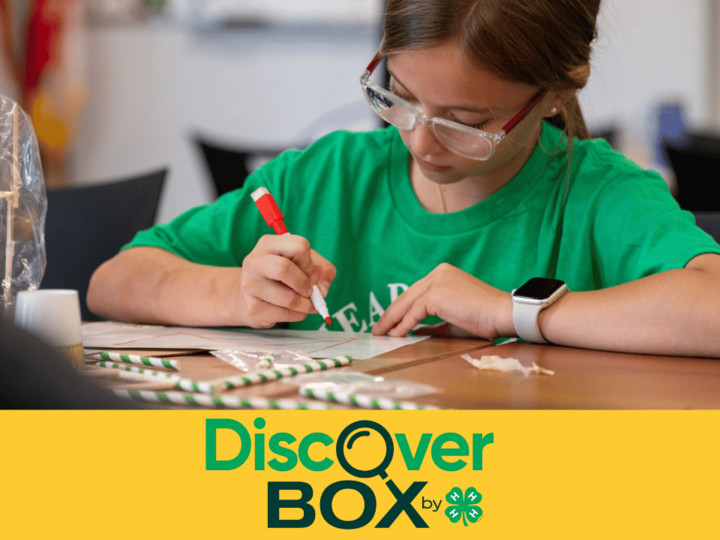
SHOP 4-H
National 4-H
Shop 4-H is the official online 4-H store and provides affordable, high-quality supplies and educational materials that will enable and create opportunities for youth to develop their full potential.
The Nebraska storefront on Shop 4-H offers a curated collection of learning resources specifically for youth in our state. Additional items and resources are also available for purchase on Shop 4-H outside of the storefront.
SHOP 4-H

Can't find what you're looking for? Contact your local Extension office!
